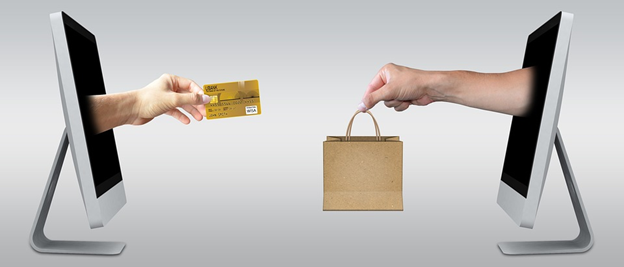5 benefits of payment portals for small business credit collections

One of the biggest changes businesses have gone through in recent years is digitization. In addition to setting up an online presence for businesses, accepting payments online has also become normal. Payment portals have become an important asset for businesses worldwide and have benefitted them in numerous ways. The Covid pandemic accelerated this momentum, with more and more customers preferring the more convenient way of transacting online rather than paying cash and risking contact.
Payment gateways are a boon, especially for smaller businesses that might not even have a physical presence and are solely operating digitally. Online shopping has increased significantly in recent years, and not having a payment gateway can mean a substantial loss of business. In 2021 alone, the total market size of global payment gateways was valued at around USD 23 billion and is expected to grow at a CAGR of 22.1% by 2030. Are you still wondering if it’s worth investing in a payment gateway? Here are some more reasons that will make a case for payment portals, no matter if you’re a small business or an established brand.

Image link: https://cdn.pixabay.com/photo/2017/03/13/17/26/ecommerce-2140603_960_720.jpg
Benefits of Using Payment Portals for Business
Enhanced User Experience
Payment portals help in improving the payment experience for users. It makes it easier for the customer to pay for your products or services through the payment portal and provides full visibility of their transactional data. Customers have full transparency on their past payments, get instant notifications about successful payments, and have options for completing payments from different channels. Users spend a substantial amount of time searching and deciding on products and will not have a positive experience if it takes forever to complete the payment, even after deciding what to buy. Payment portals also take care of customer service in case any payment falls through or gets stuck in processing for a long time.
Safer and Faster Transactions
One of the most significant advantages of having a payment gateway is the peace of mind it provides to both customers and businesses. Robust payment gateways ensure that every transaction is secured and free from any phishing attempt. They have fraud detection tools in place, high-level data encryption methods, and comply with PCI-DSS standards so that you and your customers get maximum security.
Payment portals process payments quickly as well. The process of adding something to the cart, deciding how to pay, and completing the payment can be done in a matter of seconds and with just a few clicks. Not only does it enable businesses to accept payments quickly, it also allows them to regulate their cash flow seamlessly.
Low Set Up Costs
There is a common misconception among business owners that setting up a payment gateway requires a lot of effort and money upfront and is only suitable for large businesses and enterprises. However, this is not true. While payment gateways require some initial set-up costs and can also incur a small number of chargeback fees and transaction charges from the business, they are worth it in the long run. Payment gateways have become an important and integral part of how organizations conduct business transactions, with more customers preferring to pay for things online rather than using cash. This trend will also remain for the future, so having a payment gateway adequately set up in place will become a necessity for businesses. Hence, it doesn’t matter if you’re running a start-up or a small business. Paying a minimum cost for setting up a payment gateway will help your business grow and reach new heights.
Increased Sales
You might wonder how a payment gateway can help increase the sales of a business. After all, they just accept payments and don’t serve any marketing purposes. Payment gateways help in increasing sales by providing numerous ways of payment to the customer. They can pay for something via debit cards, credit cards, UPI, or any other mode of payment they prefer. This not only makes life easier for customers but this ease of transaction kind of allures them to come back and do more business. Further, it has been found that businesses that accept card payments tend to get a lot of impulse buys from customers. A swipe of the card completes the entire transaction, allowing customers to spend more without overthinking.
Also Read: 4 Ways to Prevent Credit Card Fraud at Your Business
One more way payment gateways help increase sales is by enabling the business to go global. Anyone with an internet connection can access your website and, with a robust payment gateway in place, can pay for products from any corner of the world. You can accept payments in multiple currencies and through several methods to cater to international customers as well without any hassle.
Business Growth
In 2023, the internet will become the best place to set up and grow your business. Digital businesses are easy to set up and free of physical constraints like having a brick-and-mortar store or a cashier to complete payment. With the help of payment gateways, anyone from a big business to an individual artist can reach people worldwide and accept their payments for a product or service. Merchants who accept online payments are trusted by customers more because they have to pass through rigorous compliance checks and various security measures. This instils confidence in users and attracts them to shop from your store more frequently.
Conclusion
Having an online payment gateway in place has transcended from being a good-to-have service to an absolute necessity. Customers look for online modes of payment no matter where they shop, and they are bound to do so because of the different offers and discounts they can score while paying online. A survey done by BI Intelligence found that nearly 25% of customers would leave your website, even after adding things to their cart, if they don’t find their preferred mode of payment available. That’s one out of every four potential customers. If you’re a small business or just starting your enterprise, PayTabs can help you set up a robust payment gateway for your store. It will ensure that the transactions are quick and secure and give you full visibility of the transactions on the platform.






 Matthew Cooper – Marketing Automation & Operations Manager, Global App Testing
Matthew Cooper – Marketing Automation & Operations Manager, Global App Testing

